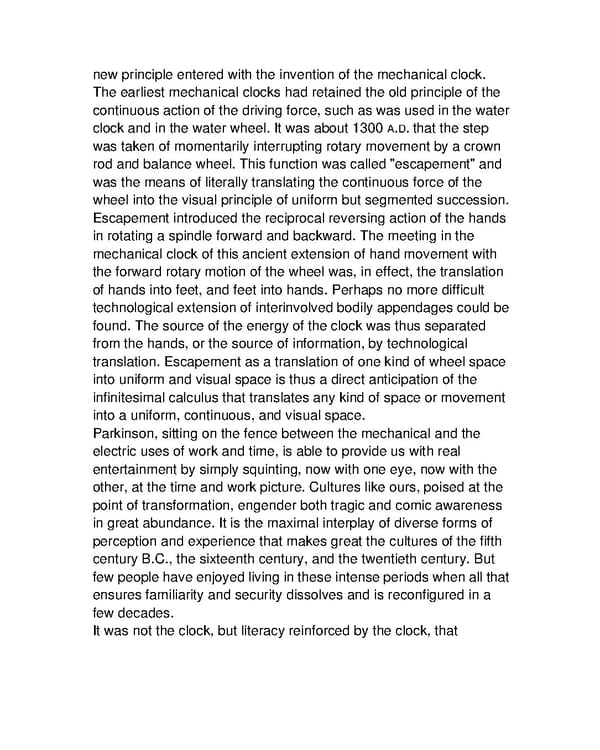new principle entered with the invention of the mechanical clock. The earliest mechanical clocks had retained the old principle of the continuous action of the driving force, such as was used in the water clock and in the water wheel. It was about 1300 A.D. that the step was taken of momentarily interrupting rotary movement by a crown rod and balance wheel. This function was called "escapement" and was the means of literally translating the continuous force of the wheel into the visual principle of uniform but segmented succession. Escapement introduced the reciprocal reversing action of the hands in rotating a spindle forward and backward. The meeting in the mechanical clock of this ancient extension of hand movement with the forward rotary motion of the wheel was, in effect, the translation of hands into feet, and feet into hands. Perhaps no more difficult technological extension of interinvolved bodily appendages could be found. The source of the energy of the clock was thus separated from the hands, or the source of information, by technological translation. Escapement as a translation of one kind of wheel space into uniform and visual space is thus a direct anticipation of the infinitesimal calculus that translates any kind of space or movement into a uniform, continuous, and visual space. Parkinson, sitting on the fence between the mechanical and the electric uses of work and time, is able to provide us with real entertainment by simply squinting, now with one eye, now with the other, at the time and work picture. Cultures like ours, poised at the point of transformation, engender both tragic and comic awareness in great abundance. It is the maximal interplay of diverse forms of perception and experience that makes great the cultures of the fifth century B.C., the sixteenth century, and the twentieth century. But few people have enjoyed living in these intense periods when all that ensures familiarity and security dissolves and is reconfigured in a few decades. It was not the clock, but literacy reinforced by the clock, that
 Understanding Media by Marshall McLuhan Page 171 Page 173
Understanding Media by Marshall McLuhan Page 171 Page 173